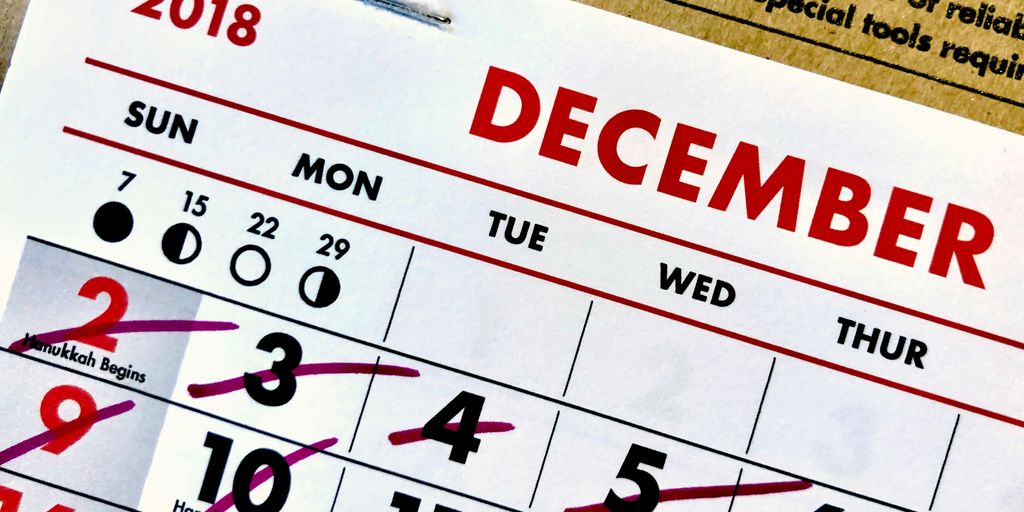Hey there, fellow investors! As we get ready for 2025, it’s a good idea to know when the stock market takes a break. These market holidays aren’t just days off; they’re chances for us to pause, think about our investments, and make new plans. From the very start of the year to the end-of-year holiday rush, understanding the stock market holidays can really help shape your investment approach. Let’s take a look at the calendar and see how these pauses can work in your favor.
Key Takeaways
- Always check specific brokerage hours, as they might have different schedules for premarket and after-hours trading around stock market holidays.
- Weekend holidays often shift market closures to the closest weekday, so keep an eye on those adjusted dates.
- Early market closures, usually at 1 PM ET, happen before some holidays and can affect how easy it is to buy or sell stocks.
- Use market holiday breaks to review your portfolio and make any needed changes, especially when trading volume is lower.
- Don’t forget the bond market; its holiday schedule can also impact your overall financial planning, even if you’re mostly focused on stocks.
Understanding Stock Market Holidays
Stock market holidays are specific dates when major exchanges like the NYSE and Nasdaq are closed for trading. It’s not just about having a day off; these closures can actually impact trading strategies and portfolio management. Let’s get into the details.
Key Dates for 2025 Stock Market Holidays
Here’s a quick rundown of the days the stock market will be closed in 2025. Knowing these dates helps you plan your investment moves accordingly. It’s worth noting that the market typically observes ten holidays each year. Here’s the list for 2025:
- New Year’s Day – Wednesday, January 1
- Martin Luther King, Jr. Day – Monday, January 20
- Presidents’ Day – Monday, February 17
- Good Friday – Friday, April 18
- Memorial Day – Monday, May 26
- Juneteenth – Thursday, June 19
- Independence Day – Friday, July 4
- Labor Day – Monday, September 1
- Thanksgiving Day – Thursday, November 27
- Christmas Day – Thursday, December 25
Impact of Weekend Holidays on Trading Schedules
What happens when a holiday falls on a weekend? Good question! If a holiday lands on a Saturday, the market usually closes the preceding Friday. If it falls on a Sunday, the market often closes the following Monday. This adjustment ensures traders and investors get a break, but it also means you need to be aware of these modified schedules when planning your trades. For example, if Christmas falls on a Sunday, expect the market to be closed that following Monday. Keep an eye on the holiday adjustments to avoid surprises.
Early Closures and Their Implications
Sometimes, the stock market closes early on certain days, typically the day before or after a holiday. For instance, you might see an early closure on the day before Independence Day, or on Christmas Eve. These early closures usually happen at 1:00 PM ET. These shortened trading days can affect liquidity and trading volumes, so it’s important to adjust your strategies accordingly. Reduced trading hours can lead to increased volatility, so be prepared for potentially bigger price swings. Here’s a quick look at potential half-days:
- The Thursday before Independence Day (if it and July 4 fall on a weekday)
- The Day after Thanksgiving Day
- Christmas Eve (if the holiday falls on a weekday)
Navigating Early Year Stock Market Holidays

New Year’s Day Market Closure
Okay, so New Year’s Day is a no-brainer. The market’s closed. It’s a federal holiday, and everyone gets the day off, including Wall Street. This closure provides a clean slate, allowing investors to reassess their portfolios and strategies for the upcoming year. It’s a good time to look at your top tech stocks and see if they still align with your goals. No trading happens, so you can relax and enjoy the start of the year without worrying about market fluctuations.
Martin Luther King, Jr. Day Trading Considerations
MLK Day is another market holiday in January. It falls on the third Monday of the month. Again, the stock market is closed. It’s a day to remember Dr. King’s legacy, and the market takes a pause. Use this day to reflect on your investment strategy. Are you in it for the long haul? Are your investments reflecting your values? It’s a good time to think about these things.
Presidents’ Day Market Pause
Presidents’ Day, observed on the third Monday of February, gives us another market holiday. The NYSE and Nasdaq are closed. It’s a day to honor all U.S. presidents, and it also provides a break from the constant trading activity. This mid-February pause can be a good opportunity to re-evaluate your portfolio’s performance since the start of the year. Have you made any gains? Are there any adjustments you need to make? It’s a good time to check in and make sure you’re on track.
Mid-Year Stock Market Holiday Planning
Good Friday and Its Market Effects
Good Friday, observed on April 18th in 2025, gives investors a breather right before the end of the first quarter. It’s a good time to take stock of how the year is shaping up. Many investors use this break to rebalance their portfolios or check out different market sectors. It’s a chance to think about any changes you might want to make to your investment strategy, especially if things have been a bit rocky. You can use this time to look at potential adjustments to your investment approach.
Memorial Day Trading Strategies
Memorial Day falls on May 26th. It’s a Monday, so you get a three-day weekend. This is a good time to look at longer trends. With the first quarter behind us, investors can use this time to tweak their strategies, maybe jumping on some market movement before earnings season really gets going. It’s also a good time to check if your portfolio is still in line with your goals.
Juneteenth National Independence Day Observations
Juneteenth, on June 19th, is another market holiday. It’s a good time to think about upcoming earnings. Using a holiday like this strategically can help you stay ahead of market-moving events. It’s also a good time to look at stock market half-days and plan accordingly.
Fourth of July and Late Summer Market Breaks
Independence Day Market Closure
Okay, so July 4th, 2025, falls on a Friday. That means a long weekend! The stock market will be closed that day. It’s a good time to take a breather and maybe check in on how your investments are doing mid-year. I usually use this time to see if my portfolio needs any adjustments, especially after seeing how Q2 earnings played out. It’s like a mini-reset before heading into the second half of the year. Don’t forget that the day before Independence Day, July 3rd, the market will close early. Make sure to check NYSE holiday schedule for the exact time.
Labor Day and End of Summer Trading
Labor Day is September 1st, 2025, a Monday, so another long weekend. This one signals the end of summer, and things tend to pick up again after that. Summer can be a bit slow in the market world, so Labor Day is like a signal that it’s time to get back into gear. I like to look at my overall strategy again, thinking about what I want to achieve by the end of the year. It’s also a good time to see if any sectors are looking particularly interesting for the fall.
Adjusting to Reduced Trading Volumes
During July and August, trading volumes can be lower. This can sometimes lead to bigger price swings than usual, so it’s something to keep in mind. It doesn’t mean you should panic, but it’s a good idea to be a little more cautious. Here are a few things I try to do:
- Avoid making big moves unless I’m really sure about them.
- Keep an eye on the news and any unexpected events that could move the market.
- Consider tightening my stop-loss orders a bit, just in case.
Basically, it’s about being a little more aware and not getting caught off guard by any sudden changes. It’s all about trading strategies that work for you.
Year-End Stock Market Holiday Strategies
Thanksgiving Day Market Impact
Thanksgiving is always a weird one. The market is closed on Thanksgiving Day, which is the fourth Thursday in November. But the day after? It’s open for a half-day, closing early at 1:00 PM ET. This can lead to lower trading volumes and potentially increased volatility, especially in the afternoon. It’s a good time to be extra cautious and maybe avoid making any big moves unless you really know what you’re doing. I usually use this time to catch up on some reading and relax after the Thanksgiving feast.
Christmas Day Trading Considerations
The stock market is closed on Christmas Day. This is a pretty straightforward holiday closure. It gives everyone a chance to enjoy the holiday without worrying about the market. The period between Christmas and New Year’s can be a quieter time for trading, but it’s also when people start thinking about year-end tax strategies and planning for the next year. It’s a good time to review your portfolio and see if any adjustments are needed.
Year-End Review During Holiday Periods
The end of the year, especially around the holidays, is a great time to take a step back and look at the big picture. Here’s what I try to do:
- Review your portfolio’s performance for the year. Did you meet your goals? What worked, and what didn’t?
- Check your asset allocation. Are you still aligned with your risk tolerance and investment objectives?
- Consider tax-loss harvesting. Can you sell any losing investments to offset capital gains?
- Plan for the upcoming year. What are your investment goals for the next year, and how will you achieve them?
Taking the time to do a thorough year-end review can really set you up for success in the coming year. Plus, it’s a good way to use the downtime during the holidays productively.
Optimizing Your Portfolio Around Stock Market Holidays
Stock market holidays aren’t just days off from trading; they’re opportunities to take a breath and really look at your investments. It’s easy to get caught up in the day-to-day ups and downs, but these pauses can be super useful for making sure your portfolio is still doing what you want it to do. Let’s get into how you can use these holidays to your advantage.
Rebalancing During Market Pauses
Market holidays are great times to rebalance your portfolio. When the market’s closed, you’re not tempted to make rash decisions based on short-term fluctuations. Instead, you can calmly assess your asset allocation and make adjustments to bring it back in line with your long-term goals. For example, if your stock holdings have grown significantly, you might want to sell some and reinvest in bonds to maintain your desired risk level. It’s all about keeping things in check. Good Friday, on April 18, 2025, is a good time to evaluate market sectors.
Planning for Reduced Liquidity
One thing to keep in mind around stock market holidays is that liquidity can be lower than usual, especially on half-days or the day before a holiday. This means it might be harder to buy or sell large positions without affecting the price. So, if you’re planning any major trades, it’s smart to do them well in advance of the holiday or wait until the market returns to normal. Here’s a quick rundown of what to consider:
- Avoid large trades close to holidays: Give yourself some buffer time.
- Use limit orders: This helps you control the price you pay or receive.
- Be patient: Don’t rush into anything if liquidity is thin.
Leveraging Holiday Insights for Future Trades
Stock market holidays also give you a chance to reflect on past performance and plan for the future. You can use this time to review your trading strategies, analyze your winners and losers, and identify any areas where you can improve. Maybe you notice that certain sectors tend to perform well after specific holidays, or that your risk tolerance needs adjusting. The Annual Letter 2025 can be a good resource here. By taking the time to learn from your past trades, you can make smarter decisions in the future. It’s like hitting the reset button and coming back stronger.
Brokerage and Trading Platform Holiday Schedules
It’s easy to forget that your brokerage follows a specific schedule, especially around holidays. You don’t want to be caught off guard when you try to make a trade and find out the market’s closed! Here’s what to keep in mind.
Checking Specific Brokerage Hours
Always double-check your brokerage’s holiday schedule. While the major exchanges like the NYSE and Nasdaq have standard holiday closures, your specific brokerage might have slight variations. Some brokers might offer limited trading hours even on certain holidays, or they might adjust their hours differently based on the specific holiday. Don’t assume they follow the exact same schedule as the main exchanges. It’s better to be safe than sorry, especially if you’re planning a time-sensitive trade. You can usually find this info on their website or by contacting customer service. For example, if you are planning to trade on Independence Day, make sure to check if your brokerage is open.
Impact on Premarket and After-Hours Trading
Holiday closures don’t just affect regular trading hours; they also impact premarket and after-hours trading. Typically, if the stock market is closed for a holiday, premarket and after-hours trading are unavailable on those dates. Also, keep an eye out for early closures. On days before holidays, like the day before Juneteenth or Christmas, the market might close early (usually at 1:00 PM ET). This will shorten both premarket and after-hours sessions, so plan accordingly.
Understanding Bond Market Holiday Adjustments
The bond market has its own holiday schedule, which sometimes differs from the stock market. While both markets close for major holidays like New Year’s Day and Christmas, there might be differences for other holidays. It’s important to be aware of these differences, especially if you trade bonds. The Securities Industry and Financial Markets Association (SIFMA) publishes a recommended holiday schedule for the bond market each year. Make sure you check it out to avoid any surprises. Bond market holiday adjustments can affect liquidity and trading volumes, so being informed is key.
Wrapping Things Up
So, there you have it. Knowing when the stock market takes a break in 2025 isn’t just about marking your calendar. It’s about being smart with your money. These days off give you a chance to step back, look at your investments, and make sure you’re still on the right track. Don’t just let these holidays pass you by. Use them to your advantage. A little planning around these market closures can really help you stay ahead of the game.
Frequently Asked Questions
Is the stock market open or closed on U.S. holidays?
The U.S. stock market is usually closed on most federal holidays. This includes days like New Year’s Day, Martin Luther King Jr. Day, Presidents’ Day, Good Friday, Memorial Day, Juneteenth, Independence Day, Labor Day, Thanksgiving Day, and Christmas Day. These closures give traders and market folks a break.
How do weekend holidays affect the stock market schedule?
When a holiday falls on a weekend, the market changes its closing day. If a holiday is on a Saturday, the market typically closes the Friday before. If it’s on a Sunday, the market often closes the following Monday. Also, sometimes the market closes early, usually at 1:00 PM ET, on the day before certain holidays like Thanksgiving, Christmas, and Independence Day.
Do holidays affect premarket and after-hours trading?
Yes, premarket and after-hours trading are usually not available on days the stock market is closed for a holiday. Also, the trading day might be shorter on the day before a holiday, which affects all trading times.
Why should I check my brokerage’s holiday schedule?
It’s really important to check your specific brokerage’s holiday schedule. Each brokerage might have slightly different hours or rules around holidays. This helps you know about any changes and plan your trades better.
How can understanding market holidays help my investment strategy?
Understanding market holidays helps you plan your investments better. These breaks are good times to look at your portfolio, make changes, and get ready for when trading starts again. Knowing when the market is closed can help you avoid surprises and make smarter choices.
What is reduced liquidity and how does it relate to market holidays?
During market holidays, especially if they create long weekends, there can be less trading happening. This means it might be harder to buy or sell stocks quickly at the price you want. Being aware of this helps you plan your trades to avoid problems.












